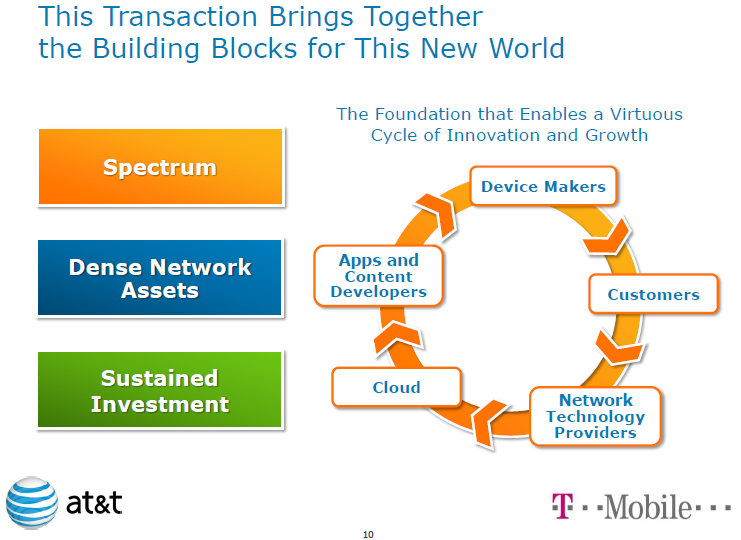Why AT&T's arguments for the T-Mobile deal back it into a corner

AT&T's case for its $39 billion acquisition of T-Mobile revolved around wireless spectrum, and improved network and more coverage for the U.S. But now that the Department of Justice wants to scuttle the deal, those arguments will haunt AT&T if the T-Mobile acquisition ultimately falls apart.
This AT&T-T-Mobile deal isn't over by any stretch. AT&T is likely to request an expedited hearing on the DOJ's request for a preliminary injunction to stop the merger. The DOJ argues that the AT&T acquisition of T-Mobile will lead to two companies (Verizon is the other) owning too much of the wireless market.
Wells Fargo analyst Jennifer Fritzsche noted that regulators appear to favor a U.S. wireless market with four major players. The problem is that regulators would be hard-pressed to stop a T-Mobile-Sprint merger. AT&T will argue that the DOJ overstepped on its antitrust boundaries.

Here's a look at AT&T's arguments for the T-Mobile deal and how they don't look so hot if there's no deal.
- Argument 1: In March, AT&T CEO Randall Stephenson said that the T-Mobile deal is about wireless spectrum. The joint company would have better coverage. It's hard to argue with that spectrum case. However, if there's no deal the next question will revolve around when and how AT&T will get more wireless spectrum. The other conundrum will be cost. How much will AT&T have to pay to procure more spectrum?
- Argument 2: The combined AT&T and T-Mobile network would have better coverage and "dense network assets." The implication is that AT&T and T-Mobile have network gaps that need to be filled. Without a deal, it's going to be hard for AT&T to contend that its network is up to snuff. After all, AT&T was going to spend $39 billion for T-Mobile to fast track network improvements.
- Argument 3: More 4G services for the U.S. is a natural outcome of an AT&T-T-Mobile merger. This argument was designed to woo regulators worried about rural wireless broadband coverage. If there's no deal, it's unclear whether AT&T will expand as quickly. Rivals are likely to note that AT&T needed T-Mobile to be a 4G player. The implication will be that AT&T is lacking in the 4G department.
Add it up and these arguments for the T-Mobile deal may back AT&T into the perception corner.
Related: